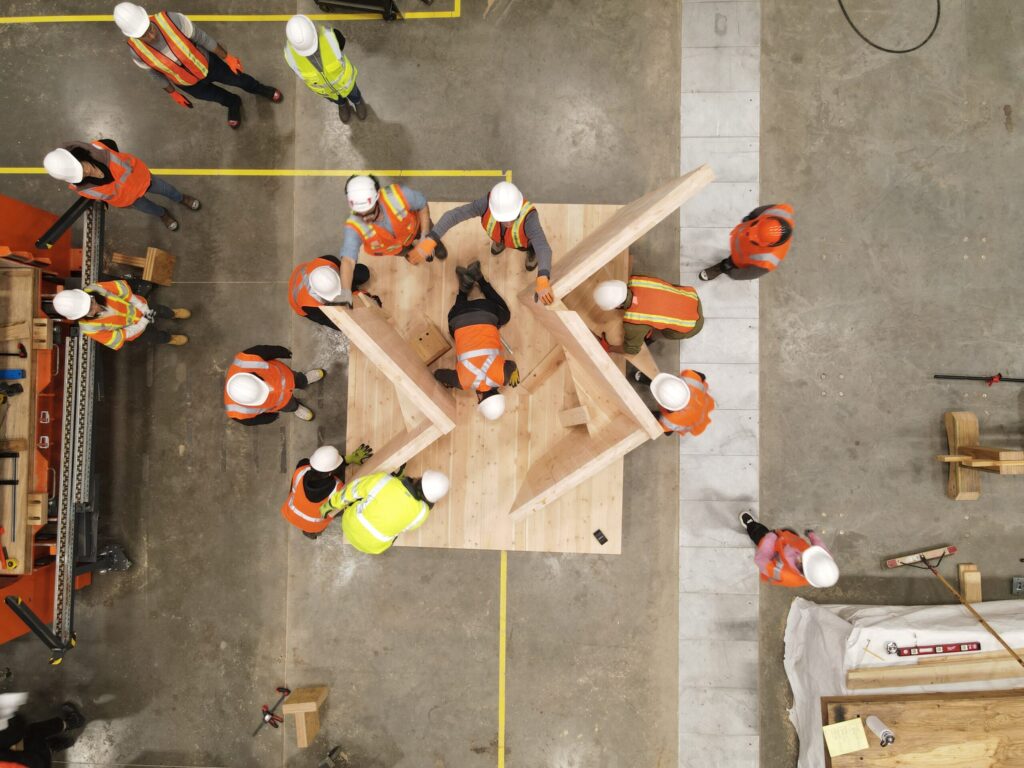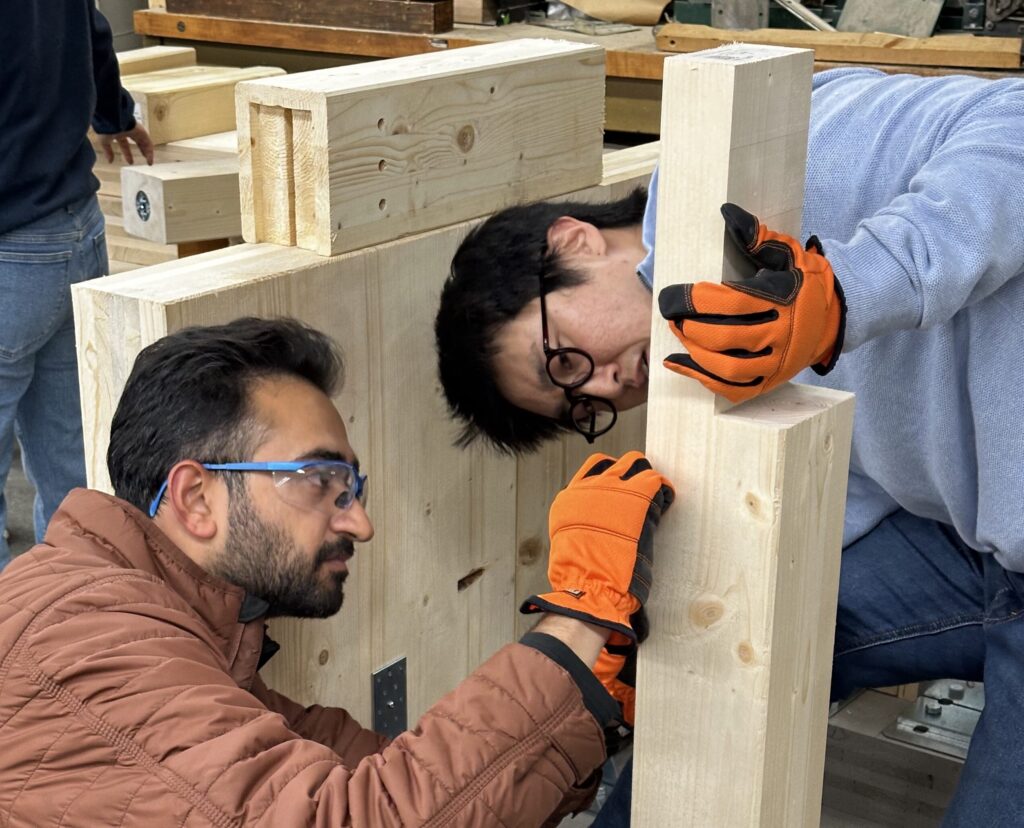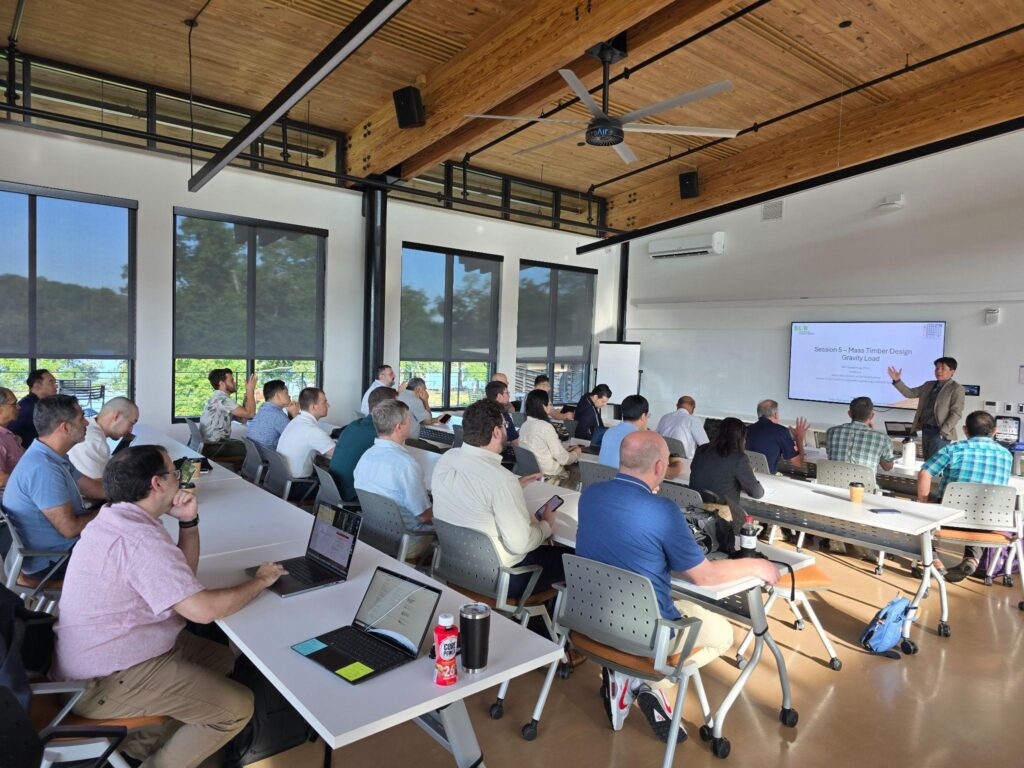Timber Architecture Design Workshop Equips Faculty to Teach Mass Timber Design
Participants engaged with leading experts across disciplines, with Tom Chung and LWA architect Su Poon leading discussions on real-world case studies demonstrating mass timber’s potential in contemporary architectural practice. Auburn faculty Brian Via and David Roueche explored wood science and the structural properties of mass timber, respectively, while Jacob Elbrecht from Auburn’s McWhorter School of Building Science led a session on life-cycle assessment (LCA) calculations.
Beyond the classroom, participants embarked on site visits that traced mass timber’s journey from forest to finished structure. These included an active timber harvest site to an up-close look at sustainable forestry practices; Rex Lumber’s southern yellow pine sawmill in Troy, AL, to better understand the processing and grading of lumber; SmartLam’s CLT manufacturing facility in Dothan, AL, to observe the production of cross laminated timber panels; and tours of completed mass timber buildings in Atlanta—including the Kendeda Building for Innovative Sustainable Design, T3 West Midtown, and Ponce City Market—to witness first-hand mass timber’s aesthetic and performance capabilities & resilience in real-world applications.
Designed to equip faculty with the knowledge and resources to integrate mass timber into their own architecture curricula, the workshop emphasized not only the technical aspects of the material but also its pedagogical value. Visiting faculty participants left with a deeper appreciation for the opportunities mass timber presents for interdisciplinary design, construction innovation, and lower-embodied carbon architecture.
Reflecting on the experience, Carlos A. Reimers, Associate Professor at Morgan State University, remarked, “The Auburn workshop was exceptionally well crafted and executed. It provided architecture educators with a comprehensive and relevant foundation in mass timber, covering everything from material science to design strategies and sustainable forestry.”
Made possible through support from the Softwood Lumber Board and the U.S. Endowment for Forestry and Communities, the workshop is part of a broader effort to expand faculty development opportunities for wood-focused education nationwide. By empowering faculty with industry knowledge and hands-on experience, they can take the knowledge of mass timber gained back to their own schools and in turn, inspire the next generation of architects—their students—to embrace wood as a key solution in the shift toward a more sustainable built environment.
For more information on upcoming workshops and how to apply to attend, contact education@thinkwood.com.







